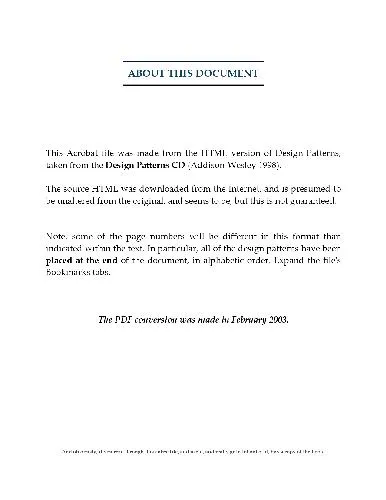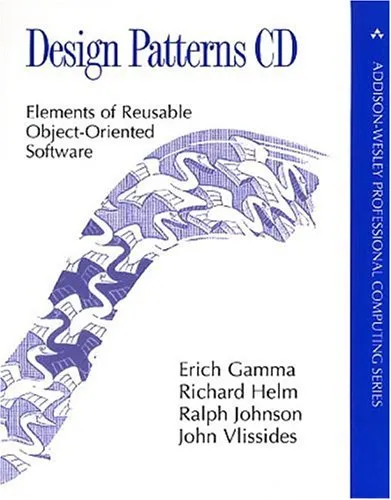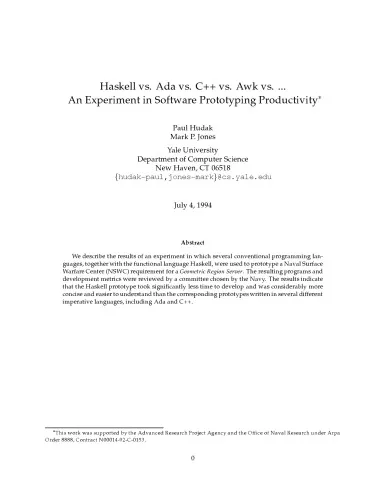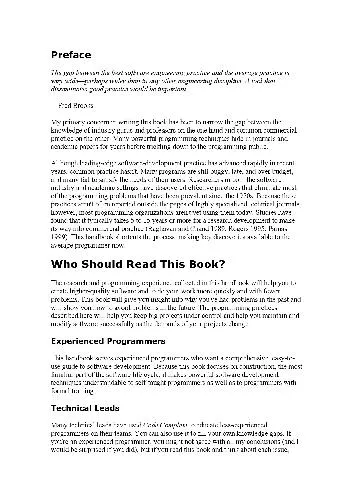Refactoring - Improving the Design of Existing Code
4.2
Reviews from our users

You Can Ask your questions from this book's AI after Login
Each download or ask from book AI costs 2 points. To earn more free points, please visit the Points Guide Page and complete some valuable actions.Related Refrences:
Persian Summary
Introduction
"Refactoring - Improving the Design of Existing Code" is a seminal work in software engineering, laying the foundation for modern approaches to improving and enhancing code without altering its external behavior. Authored by Martin Fowler, along with contributions from Kent Beck, John Brant, William Opdyke, and Don Roberts, this book serves as an essential guide for developers seeking to improve the quality, performance, and maintainability of their software projects.
Detailed Summary of the Book
The book delves into the concept of refactoring as a disciplined technique for restructuring existing code. It provides a comprehensive overview of the principles and practices involved in refactoring, ensuring that the software remains functional while enhancing its internal structure. The authors begin by defining refactoring and exploring its purpose, followed by a detailed exploration of the step-by-step process necessary to refactor code responsibly.
Central to the book are dozens of refactoring methods, each meticulously explained with examples and application contexts. The authors guide readers through identifying code smells, an indicator of potential areas for improvement, and then employing specific refactoring strategies to address these smells. They also emphasize the importance of testing, both as a precursor to refactoring and to verify that changes have been correctly implemented.
The book covers a range of topics including optimizing existing code, improving designs, and facilitating easier maintenance of systems. Its approach is rooted in real-world experience and is presented in a manner accessible to both novice and experienced developers, offering practical insights and techniques that can be applied across different programming environments and languages.
Key Takeaways
- Refactoring improves code maintainability, readability, and performance without changing its external behavior.
- Recognizing code smells is essential to identifying opportunities for refactoring.
- A systematic approach to refactoring involves incremental changes and continuous testing.
- Refactoring aids in reducing technical debt and helps in adapting code to new requirements.
- Applying refactoring techniques can lead to increased developer productivity and satisfaction.
Famous Quotes from the Book
"Any fool can write code that a computer can understand. Good programmers write code that humans can understand."
"The only way to go fast, is to go well."
"Refactoring is disciplined technique for restructuring an existing body of code, altering its internal structure without changing its external behavior."
Why This Book Matters
"Refactoring - Improving the Design of Existing Code" is a cornerstone resource in the field of software development. It introduces a systematic approach to code improvement that encourages the evolution of both individual skills and collective codebases. The concepts laid out in the book have informed modern agile practices and shaped how developers think about and interact with code. Its impact is especially significant in an industry facing constantly changing requirements and technology advancement, ensuring that developers can deliver robust, scalable, and efficient software solutions.
As software systems grow more complex, the principles and practices of refactoring become increasingly vital. This book empowers developers to embark on their refactoring journey with confidence, armed with knowledge and techniques that can transform both legacy systems and modern applications into maintainable, efficient, and high-quality software.
Free Direct Download
You Can Download this book after Login
Accessing books through legal platforms and public libraries not only supports the rights of authors and publishers but also contributes to the sustainability of reading culture. Before downloading, please take a moment to consider these options.
Find this book on other platforms:
WorldCat helps you find books in libraries worldwide.
See ratings, reviews, and discussions on Goodreads.
Find and buy rare or used books on AbeBooks.
1684
بازدید4.2
امتیاز0
نظر98%
رضایتReviews:
4.2
Based on 0 users review
Questions & Answers
Ask questions about this book or help others by answering
No questions yet. Be the first to ask!































